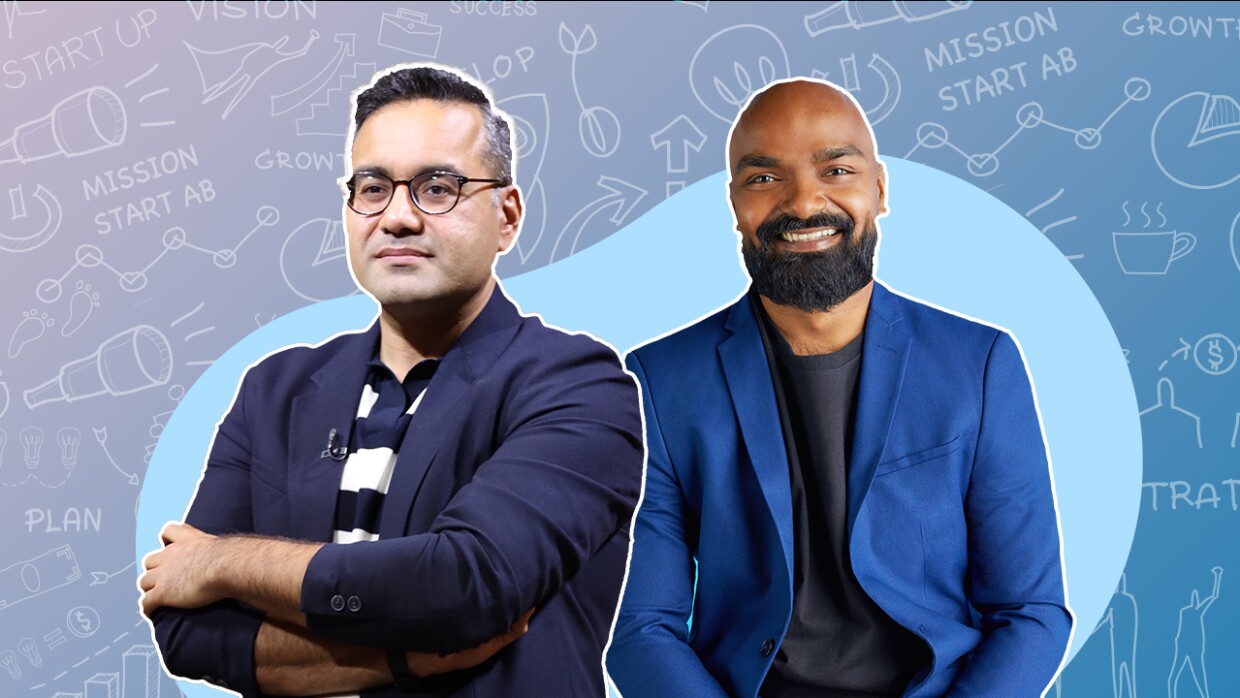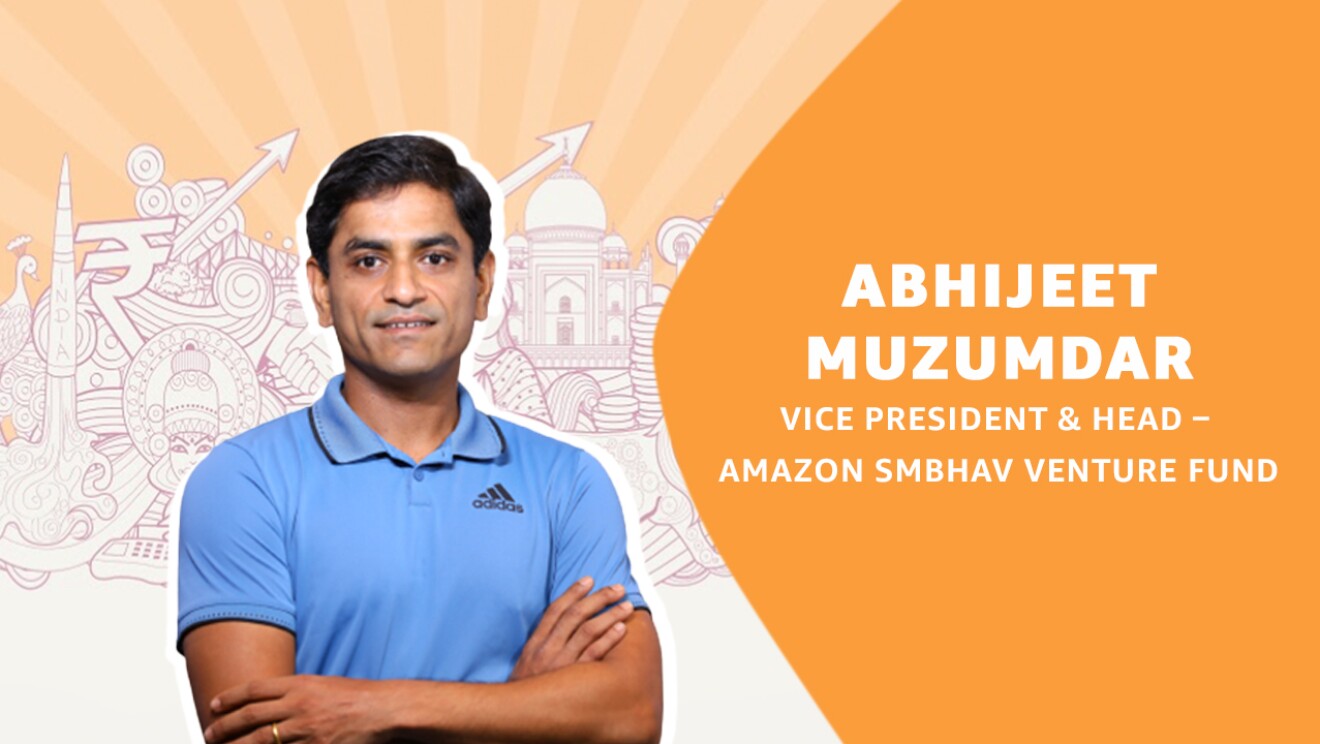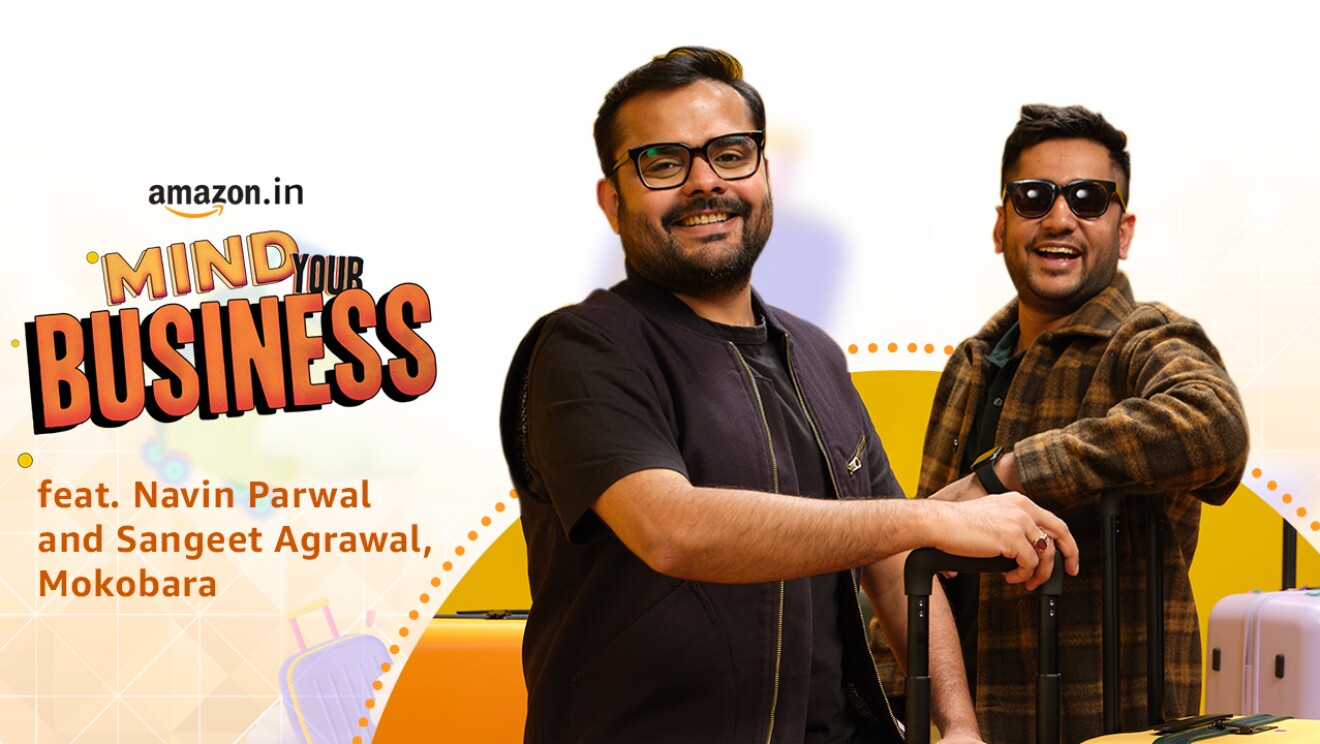Mission Start Ab uncovers hidden gems from India and gives a bird’s eye view into the ‘founder’s life,’ complete with all its highs and lows. Come December 19, this competitive reality series from Prime Video will begin the journey to find India’s next unicorn—a startup that’s valued at over $1 billion. Through a series of challenging tasks and engaging activities, 10 early-stage grassroot entrepreneurs will be mentored by three investors—Kunal Bahl (co-founder, Snapdeal and Titan Capital), Anisha Singh (founder, She Capital, founder and former CEO, MyDala), and Manish Chowdhary (co-founder, WOW Skin Science). The show will serve as a helpful resource for aspiring innovators across the country.
We caught up with Sushant Sreeram, Country Director, Prime Video India, and Kunal Bahl to find more about the thinking behind Mission Start Ab and how the show seeks to build profitable, enduring startups that solve peculiar Indian problems. Edited excerpts.
Sushant, what was the inspiration for a show like Mission Start Ab and how does it fit into Prime Video’s narrative of supporting the creator economy and the startup ecosystem?
The first part is about entertainment and how it fits into how we think about programming. We wanted the show to be entertaining and engrossing. We program across a diverse slate and this unscripted series fits within that. This is a special show because it is entertaining without necessarily having a target demographic. It serves as a platform to showcase and inspire the next generation of creators and entrepreneurs.
The second part is how it fits into Prime Video’s broader commitment to nurture the ecosystem across the country. Mission Start Ab showcases grassroots entrepreneurs and goes back to our commitment to make India an inspiring force for everybody on the global stage.
These entrepreneurs and creators may have modest backgrounds, but their ambitions definitely aren’t. We love this about them.
These are not just great stories but also innovations and creations from India that can resonate across the world.

Sushant, the series has been developed in collaboration with the Office of the Principal Scientific Adviser to the Government of India (PSA). That’s a unique collaboration—tell us more.
Prime Video is not just committed to bringing great entertainment via movies and shows to our customers, but we've gone one step further and looked at ways to build and nurture this ecosystem. The most pertinent of our commitments is the Letter of Engagement we signed with the Ministry of Information and Broadcasting (MIB) earlier this year that includes multiple initiatives like masterclasses, trainings, workshops, and internships. The idea behind all of them is to ensure we’re investing in the ecosystem such that creative storytelling from India is always operating in full force.
We’ve been pulling at the threads on how we can invest in the country’s economic growth and we do that across Amazon—whether it is the Amazon Smbhav Fund, Amazon Launchpad, or a whole slate of other initiatives. The Letter of Engagement with MIB sets the foundation to shape these initiatives. When we realised that we have an opportunity to build a compelling show for our audiences around entrepreneurship, our collaboration with the Office of the PSA really came into play. Step one was brainstorming how we wanted to construct the format and they really helped us with it. The next step was finding entrepreneurs and we went through a long list of over 1,500 registered startups across the country along with the Office of the PSA. We ended up meeting 250 of them in-person. The Office of the PSA was invaluable in their support in constructing the show. We're really happy with what this collaboration has resulted in.
Kunal, what role do you think a show like Mission Start Ab would play in catalysing the Indian startup ecosystem?
I'm incredibly passionate about the startup ecosystem. I started with nothing and the impact I've been able to create for myself, my family, and the wider ecosystem is only because of the ecosystem itself. Through investing, mentorship, and giving time, I have and will continue to help founders but I will always be limited by time and capital. One way to significantly inspire a wide set of entrepreneurs is through a platform like Prime Video. We can together activate the grassroot entrepreneurship movement in our country and propel fence-sitters who have an idea but don’t know where or how to start.
For a lot of people with a fire in their belly, this show will be like a ready reckoner. It will show them what their journey could look like.
There will be highs and lows, twists and turns, some losses and many victories—their parents will see it, their families will see it, and it will start looking possible. None of the founders featured in the show come from a position of privilege (incredibly high intelligence, money, a wealthy family, or from big hubs like Delhi, Bangalore, and Mumbai). So, if they can build a successful company while realising their own dreams, every aspiring entrepreneur can. The goal is to inspire an entire generation of startup founders in our country.
Kunal, is there a specific quality you are looking for in the next big Indian unicorn?
As an ecosystem, need to move away from valuation as the primary determinant of success. Impact is what should determine the success or failure of a startup. I prefer using the word Indicorn vs unicorn, as we’re looking at Indian problem statements and challenges with very rooted solutions. Made-in-India unicorns or startups that solve India-centric problems generate high revenue and command strong valuations. But at the end of the day, it’s the passion to solve something long-term that truly makes it an enduring business. India needs 10,000 enduring and profitable Indicorns that can create a positive change in the industries they operate within and the communities they belong to.
What kind of ventures can we expect to see on the show?
Bahl: We have a wide variety of founders—startups doing robotics, retail, software, fintech, and more. We believe it will cater to a very wide audience, and by effect, be very relatable to them.
Kunal, what do you think makes a startup idea or entrepreneur really stand out today?
On one hand we have inputs that go into building a startup and on the other hand you need to define the output that determines whether it is a great venture or not. In terms of the inputs needed, it's the simple stuff that we tend to overlook. Founders need a tremendous amount of focus and discipline. They need to build a fantastic team around themselves and have a high degree of passion and purpose for what they’re building. There will be so many moments where entrepreneurs have several reasons to just walk away. These are usually the inputs that ensure you have a higher probability of success in an otherwise low probability outcome event like building a successful startup. I look for startups that are solving a problem statement that is materially better than the traditional or new age solutions that already exist. For instance, there are food delivery and online payment companies that have clearly given a 5-10x better experience to the consumer while ensuring their businesses are sustainable in nature. That is the definition of a successful startup for me.
Kunal, can you share any interesting anecdotes from the shooting of Mission Start Ab?
The best anecdotes for me are actually observations of the founders themselves. Each one of the founding teams are so unique. They have their strengths and weaknesses and watching the geometric progression of these individuals over a 30-day period was the most interesting part. They improved as founders and as people; it was almost like a bootcamp. Funnily, this show was originally codenamed bootcamp, and effectively, that's what it was.
















